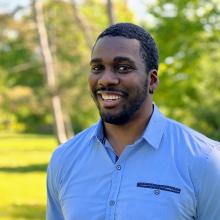Member Spotlight: Allen Mallory
Assistant Professor, Department of Human Sciences, The Ohio State University
Why did you decide to choose Developmental Science as a course of study or career?
Developmental science was a good fit for my research interests, and the focus on the importance of social context and development were essential lenses that I wanted for my research training.
Is there a mentor or mentors who have been instrumental to your career and, if so, who and how?
I've been fortunate to have great mentors throughout my graduate and postdoctoral training. During my masters program, Sandra Stith exposed me to doing rigorous grant-funded team-based research which provided a solid foundation for going into my Ph.D. During my Ph.D. Dr. Stephen Russell was instrumental in learning to do good and socially aware research about sexual and gender diverse populations. My postdoc mentor Natasha Slesnick, was incredibly supportive of me pursuing my own line of research and teaching me about intervention research.
What advice would you give to a Graduate student beginning their Ph.D. studies in Developmental Science or related?
I would give three pieces of advice. First, take time to settle in and get to know your community outside of grad school. You will be in living where you go to school for many years and those connections outside of grad school are important support networks. Second, make lots of connections within the academic world (i.e., other grad students, staff, post docs, and faculty) whether it's in your specific program, the school at large, or at conferences. Some of the connections will turn into friendship and collaborators throughout your time and academia. Third, learn as much as you can. As hard and stressful as grad school can be, it's also a pretty unique opportunity to get to spend your time focused on learning, and you get less and less time to purely do this the further along you get in grad school and your academic career.
What publication or book would you say is a must read in the field (and why)?
My recommendations would be to read Psychology of Sexual Orientation and Gender Diversity and LGBT Health. Much of the cutting edge research on sexual and gender diverse people tends to get published in these journals.
Why did you join the SOGIE Caucus and how does it facilitate connection among members all year long?
I joined the SOGIE Caucus because it was a space to connect SOGIE scholars. The listserv has been a great way to share information and resources. Early on, there were meetings that brought together SOGIE scholars to talk about research, grant funding, advocacy, and getting to know one another.
